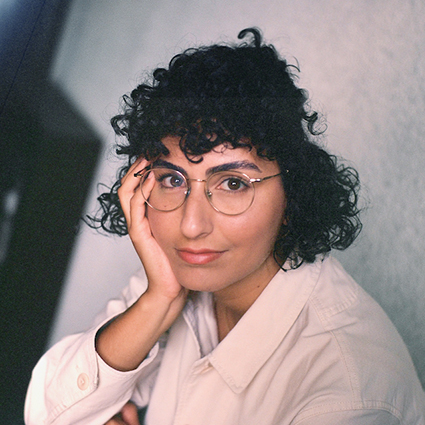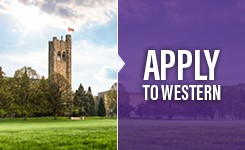Maryam Golafshani
 Graduated 2017
Graduated 2017
Double Major in Critical Theory, Criticsm and Literature and the School for Advanced Studies in Arts and Humanities; Scholar's Electives
Hometown: Waterloo, ON
After SASAH: Western University, MA in Theory & Criticism; University of Toronto, MD Program
Current field of work/study: Psychiatry resident
What attracted you to this program?
In short: the inter-disciplinarity (especially as I have always had so many interests and narrowing them down felt impossible!), small class sizes, and all the community-based educational experiences. I was drawn to SASAH because it encouraged interdisciplinarity and offered small classes where you could build close relationships with professors who would eventually become important mentors. I switched into SASAH after a year as a science student where I was herded into lectures with 800 students who were all asked to learn and regurgitate the same thing. I couldn’t wait to sit in a small class where we were encouraged to explore our own unique interests.
"My SASAH and humanities background in general made me really, really stand-out as a medical school applicant and I was very privileged to have numerous admission offers despite the extremely competitive nature of medicine."
What are your thoughts about life as a SASAH student? What makes it unique?
My experience was perhaps a bit different than the current experience since I was part of the very first “guinea pig” cohort. But overall themes that stand out is how much 1:1 support we get from faculty and TAs, how amazingly special my peers were, and how flexible the program was to my particular needs/wishes as a learner.
SASAH is unique because your classmates come from a diverse range of programs, but you all always come back together for 1-2 SASAH classes per year. SASAH gives you an intimate, tight-knit home while still letting you take advantage of everything a huge university has to offer. Moreover, SASAH actually brings people and knowledge from different disciplines together. It is truly interdisciplinary program in that way; typically, individual students might choose to take courses across different departments, but those different disciplines rarely come together in a single class like they do in SASAH.
How did your relationships with other SASAH students positively affect your experience at Western overall?
More than a decade after starting my SASAH journey, I still have some close, lifelong friends from the program!
How has SASAH prepared you for the job market and/or graduate school?
I did my MA in Theory & Criticism before heading to medical school and now being a resident doctor training in psychiatry. In terms of grad school, I had lots of independence in SASAH which allowed me to do well with the immense independence we have to deal with as graduate students. In terms of job market… well, it’s a bit different for me since I went into medicine. My SASAH and humanities background in general made me really, really stand-out as a medical school applicant and I was very privileged to have numerous admission offers despite the extremely competitive nature of medicine. Again, when applying to residency to specialize in psychiatry, it was a very unique selling point for me and I credit it a lot to successfully matching to my top choice program. A lot of people worry that not studying science is a disadvantage to getting into medicine, but I found it to be a huge plus. Another thing that helped was that I had so much 1:1 attention from my professors in SASAH that I was able to have excellent mentorship and reference letters for medical school.
What lessons and skills contributed to your success after you graduated?
In terms of grad school, I think I had excellent research skills from my SASAH experience, had really strong writing skills thanks to the attention/feedback of my teachers, and also was already thinking a lot about real-world application of my research given how much of my SASAH experience was grounded in community. The latter point is part of what led me to wanting to become a doctor as a rather unique community-based applications of all I had learned during my time at SASAH. Now as a physician, I firstly find my undergrad and master’s training make me extremely efficient and effective at documentation which is a HUGE part of my job. It also got me thinking about inter-disciplinarity in a serious way from a relatively young age which is of course essential to now finding ways to still bring the humanities into medicine. I think my perspective is really different (not necessarily better, but definitely different) from most of my physician peers given my unique humanities background and this has served me/my patients well in terms of really being able to attend deeply and critically to their stories—which is really the foundation of all medical specialties, but most especially psychiatry.
As an experienced graduate, do you have any advice for current SASAH students?
Seek out mentors whether in upper-year students, TAs, or professors. I would say mentorship is 80% of why I’m where I am today. And speaking of that, take the long view. Sometimes you feel like you have to do everything in undergrad (as I did) and put so much pressure on yourself, but remember you have decades to achieve your goals.


